
Empower manufacturers, distributors, and logistics providers with advanced automation, real-time visibility, and predictive analytics. From procurement to last-mile delivery, we build digital systems that streamline global supply chains.
We design intelligent software platforms that optimize logistics, monitor inventory, manage vendors, and enable data-driven decision-making across complex supply networks.
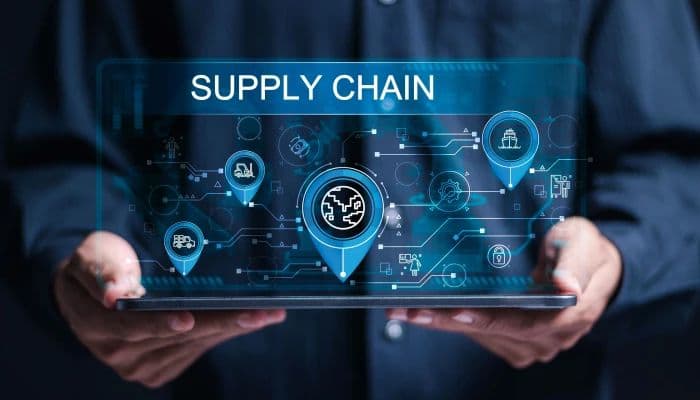
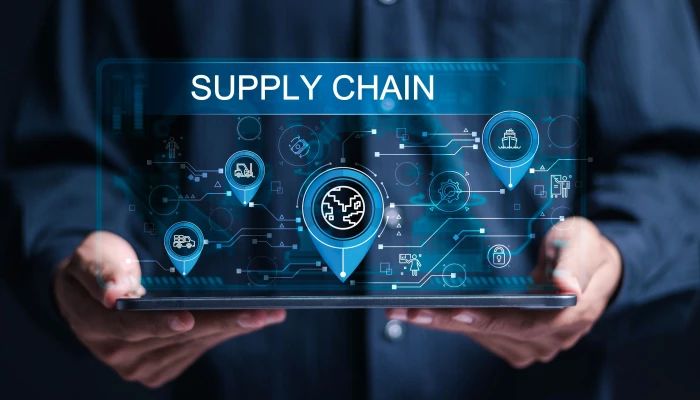


Leverage IoT, AI, and cloud technology to enhance transparency, resilience, and efficiency across your global supply chain. Streamline procurement, production, warehousing, and transportation with digital transformation.
Track stock levels continuously across all warehouses to prevent shortages or overstock. Automate reordering based on predictive analytics for smooth inventory flow. Balance supply and demand efficiently using AI-driven forecasts. Reduce holding costs while maintaining optimal stock availability. Gain actionable insights for faster decision-making and improved profitability.
Centralize supplier and vendor information in a single platform for easy access. Monitor performance, contracts, and compliance with automated tools. Facilitate collaboration, Mitigate risks by identifying underperforming suppliers quickly. Streamline procurement processes for faster and more accurate sourcing.
Track shipments and delivery routes in real time for complete visibility. Optimize transportation schedules and reduce delivery delays. Enhance customer satisfaction with accurate tracking updates. Analyze route efficiency to lower fuel and operational costs. Identify and resolve logistics bottlenecks proactively with AI insights.
Implement AI and robotics for automated sorting, picking, and packing. Increase operational efficiency while minimizing human errors. Monitor warehouse processes remotely for better control. Reduce labor costs and improve throughput across facilities. Integrate automation with your inventory system for seamless operations.
Visualize key KPIs across the supply chain in real time. Track logistics performance and identify inefficiencies quickly. Use AI-powered dashboards to optimize routes and workflows. Predict trends to make proactive decisions and reduce delays. Enable data-driven strategies for cost reduction and efficiency gains.
Facilitate seamless communication among suppliers, transporters, and distributors. Share real-time updates and documentation securely in the cloud. Enable collaborative decision-making to resolve issues faster. Reduce delays caused by miscommunication or fragmented systems. Ensure transparency and accountability across your supply chain network.
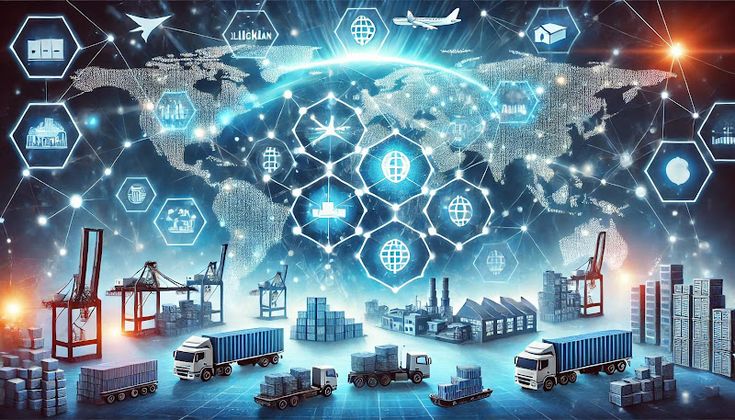
Monitor freight movement, delivery times, and route efficiency using live data analytics and GPS tracking.
Automate warehouse workflows, manage stock distribution, and minimize downtime with AI-assisted tools.
Enable seamless coordination among manufacturers, vendors, and distributors via centralized communication tools.
Leverage advanced AI and data modeling to accurately forecast demand patterns across your business. Anticipate production needs and optimize inventory levels efficiently. Analyze historical trends and real-time market signals for smarter planning. Reduce stockouts and overproduction with precise demand predictions. Drive operational efficiency and increase customer satisfaction with actionable insights.
Protect sensitive business and supplier data through end-to-end encryption and secure platforms. Ensure regulatory compliance across all supply chain operations. Maintain transaction integrity with robust audit trails and monitoring. Prevent data breaches and reduce operational risks effectively. Enable trust across your supply network with secure and compliant systems.
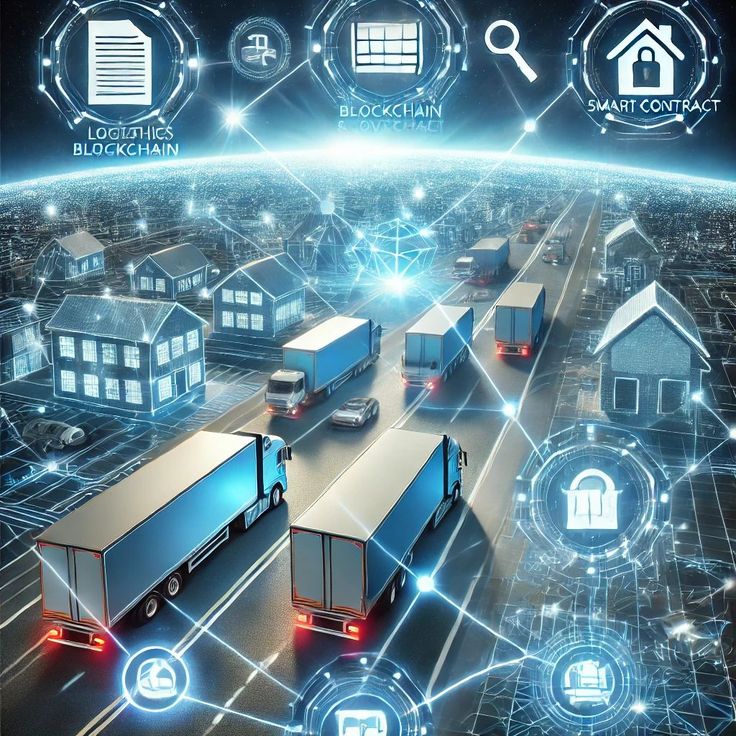
Stay connected to your supply chain anytime, anywhere with mobile-friendly platforms. Receive real-time shipment updates and inventory alerts instantly. Track orders, deliveries, and stock levels directly from mobile devices. Empower field teams to make fast and informed decisions on the go. Enhance collaboration and operational responsiveness with mobile accessibility.
Gain deep insights into procurement costs, supplier performance, and transport efficiency. Track KPIs across your supply chain for better decision-making. Identify areas to reduce expenses and improve operational workflows. Generate comprehensive reports to monitor performance over time. Optimize supply chain processes for cost savings and maximum efficiency.
Our supply-chain software developers create intelligent platforms to manage inventory, track shipments, and optimize logistics for smoother operations.
Monitor stock levels and automate restocking processes. Reduce errors and improve warehouse efficiency.inventory management software
Track shipments in real time and manage delivery schedules. Ensure timely and accurate order fulfillment.shipment tracking software
Streamline supplier onboarding and purchase orders. Optimize procurement for cost efficiency and reliability.supplier management software
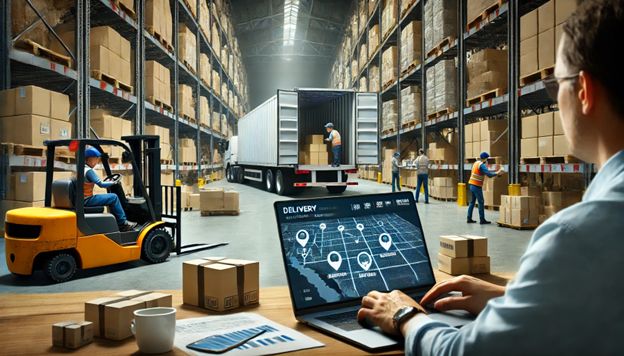

Predict future demand with AI-powered tools. Reduce overstock and stockouts for efficient planning.
Optimize delivery routes and reduce transit costs. Improve on-time delivery and fleet management.
Automate order processing and tracking. Ensure accurate, fast, and seamless order fulfillment.
Supply Chain Management (SCM) software helps businesses manage and optimize the flow of goods, information, and finances across the entire supply chain—from procurement to final delivery. It enhances visibility, reduces costs, and improves efficiency.
Modern technologies like AI, IoT, and blockchain enable real-time tracking, predictive demand planning, and transparent operations. These innovations minimize disruptions, improve forecasting accuracy, and ensure faster, data-driven decision-making.
Yes. Most supply chain systems seamlessly integrate with ERP, CRM, and warehouse management platforms to unify data, streamline operations, and enhance collaboration between departments and partners.
SCM software improves demand forecasting, optimizes inventory levels, and reduces lead times. It provides end-to-end visibility, enhances supplier relationships, and boosts overall customer satisfaction through timely deliveries.
AI analyzes historical and real-time data to predict demand, identify bottlenecks, and automate repetitive tasks like order processing or route optimization. This helps organizations respond quickly to market changes and supply fluctuations.
IoT sensors track shipments, monitor storage conditions, and provide real-time updates on location and status. This enables proactive issue resolution and ensures product quality during transit and storage.
Companies can adopt green logistics, use renewable packaging materials, and optimize transport routes to reduce emissions. SCM software also tracks sustainability metrics and helps meet environmental compliance standards.
Cloud-based SCM platforms offer scalability, remote access, and real-time collaboration. They reduce IT maintenance costs while ensuring data security and faster deployment compared to on-premise systems.
Predictive analytics helps forecast demand, anticipate supply disruptions, and plan optimal inventory levels. It allows organizations to make proactive decisions, reducing delays and avoiding stockouts.
The future of supply chains lies in digital twins, AI-driven automation, and blockchain-enabled transparency. These technologies will enable more resilient, adaptive, and sustainable global supply networks.